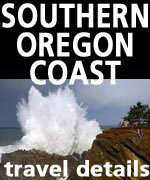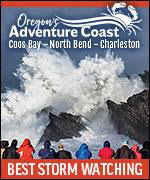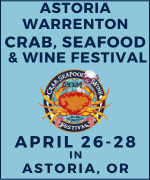Smelly 'Globster' of a Dead Whale Will Be Left to Oregon Coast Wildlife
Published 03/08/2017 at 7:03 PM PDT
By Oregon Coast Beach Connection staff
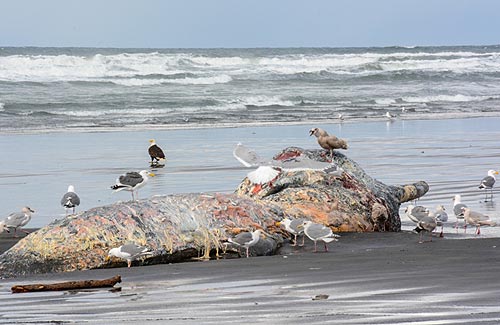
(Warrenton, Oregon) – A 36-foot sperm whale in a particularly nasty state of decay has hit one north Oregon coast beach this week and plans are for it to stay there and let nature take its course. (Photos courtesy Seaside Aquarium).
Commonly known as a “globster” - a rotting corpse of a whale that is often barely recognizable – it came ashore around Warrenton on Monday morning. The body is just north of the wreck of the Peter Iredale in an area where the beach narrows and where there may not be as much sand as there appears to be. This is one reason why the foul-smelling globster won't be buried and will instead be left as food for local wildlife.
Crews from the Seaside Aquarium and Oregon State Parks and Recreation (OPRD) responded on Monday once it hit the beach. Aquarium crews – part of the Marine Mammal Stranding Network – took measurements, gathered other data and removed the jaw for further testing and a necropsy.
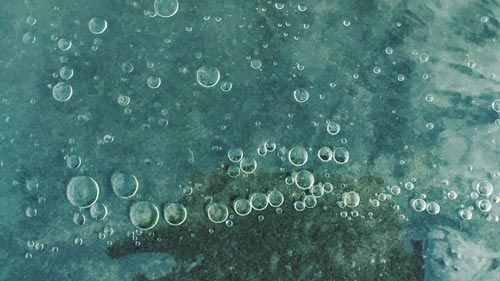
Above: pools of whale oil in the water around the whale
The sperm whale had been dead for some time, and aquarium manager Keith Chandler said its smell was “not pleasant.” Still, its body was not missing sections as many long-deceased sea mammals do when they strand.
“As for the rest of the carcass, it is going to remain on the beach for nature to take its course,” said the aquarium's Tiffany Boothe. “By not burying the carcass shorebirds and raptors will be able to feast on this fatty-rich food. Leaving the carcass on the beach is really good for the beach ecosystem.”
Chandler said this is a natural approach that OPRD is trying to utilize whenever possible. Since this area is rather isolated, with little foot traffic, and it's a spot where the sand may not be as deep as it looks, Chandler said this approach just made sense.
“If it was a busier place like on Seaside or Cannon Beach we would bury them,” Chandler said.
Indeed, Boothe said that while crews were present many birds started feeding on the body of the whale.
“In the small time we were there we witnessed bald eagles, western gulls, ravens, and even a small fork-tailed storm-petrel scavenging on the carcass,” Boothe said. “The petrel was actually ‘sipping’ the whale oil off the top of the water which had pooled up around the head of the animal.”
Sperm whale carcasses have been quite rare on the Oregon coast in recent years. The last one on the northern part of the coast that the aquarium staff dealt with was in 2012. There were a handful of others between 2006 and 2010.
Aquarium crews knew about the whale a couple of days in advance, Boothe said. U.S. Coast Guard crews spotted it last week off Newport. It then began moving northward and was reported on Sunday by the Coast Guard as drifting about four miles off Camp Rilea. Boothe said drift models suggested it would wash up between the camp and the Columbia River, and it did exactly that.
Officials urge you not to touch the carcass of the whale as doing so could make you sick. The same warning holds for dogs. It is also illegal to remove any part of a whale. Lodging in Astoria/Seaside - Where to eat - Maps and Virtual Tours
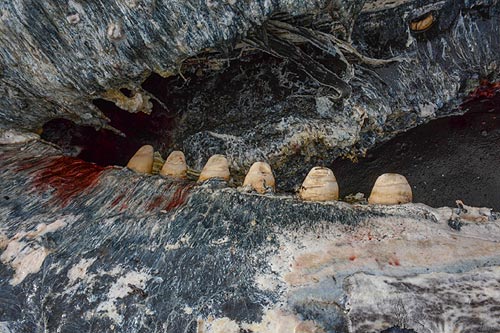
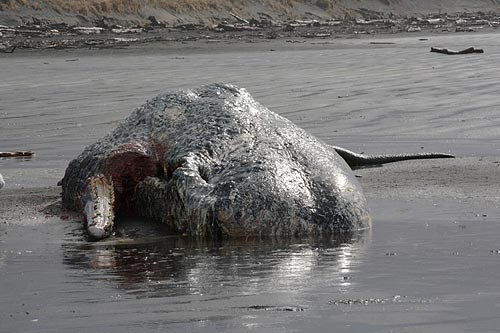
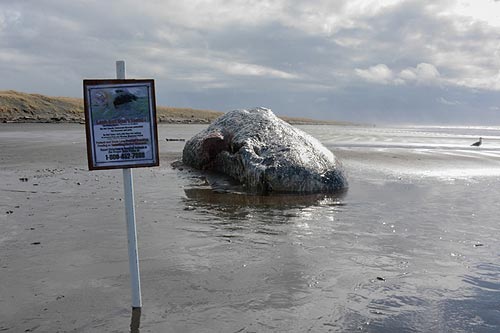
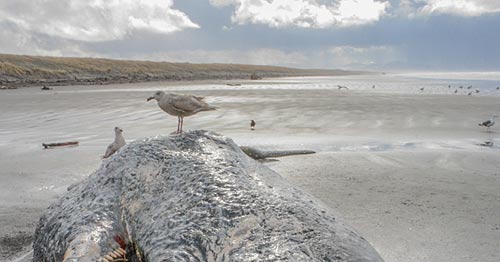
More About Oregon Coast hotels, lodging.....
More About Oregon Coast Restaurants, Dining.....
Cannon Beach Lodging
Nehalem Bay Lodgings
Manzanita Hotels, Lodging
Three Capes Lodging
Pacific City Hotels, Lodging
Lincoln City Lodging
Depoe Bay Lodging
Newport Lodging
Waldport Lodging
Yachats Lodging
Oregon Coast Vacation Rentals
Oregon Coast Lodging Specials
LATEST Related Oregon Coast Articles
Likely just before dawn best hour but peak happens during daylight. Weather
Dark Sky Week is Prime Along Oregon Coast: Where and Where Not to Go
General guide to dark sky viewing from south to north coast. Astronomy
Sizable Price Drop, Deals in Lincoln City During Quiet of April on Central Or...
20 perc off at A1 Vacation Rentals across its roster, including Gleneden Beach. Lincoln City specials
Upcoming S. Oregon Coast Events Include Gem Show, History: Coos Bay, Bandon
May 6 talk at Coos History Museum, Mayfly Fest May 17, Bandon Rock / Gem Show June 7,8
Washington Coast Cleanup on April 19 - Coinciding with Oregon Coast's SOLVE E...
From the Puget Sound to Long Beach, alongside Oregon's cleanup. Washington coast events, Seaside events
Astoria's Riverwalk Gets New Lighting, More N. Oregon Coast Roadwork
Delays coming this summer, but the riverwalk has a new look. Seaside, Cannn Beach
April Gets Even Cheaper Midweek at Depoe Bay, Lincoln City: Oregon Coast Deals
Off-season rates plus more at Keystone Vacation Rentals. Depoe Bay lodging specials, Lincoln City hotel reviews, Newport hotel reviews
Washington Coast Begins Week of Clam Digs, April 12 Through 18
Long Beach, Twin Harbors, Mocrocks and Copalis at different times. Washington coast events
Back to Oregon Coast
Contact Advertise on BeachConnection.net
All Content, unless otherwise attributed, copyright BeachConnection.net Unauthorized use or publication is not permitted









